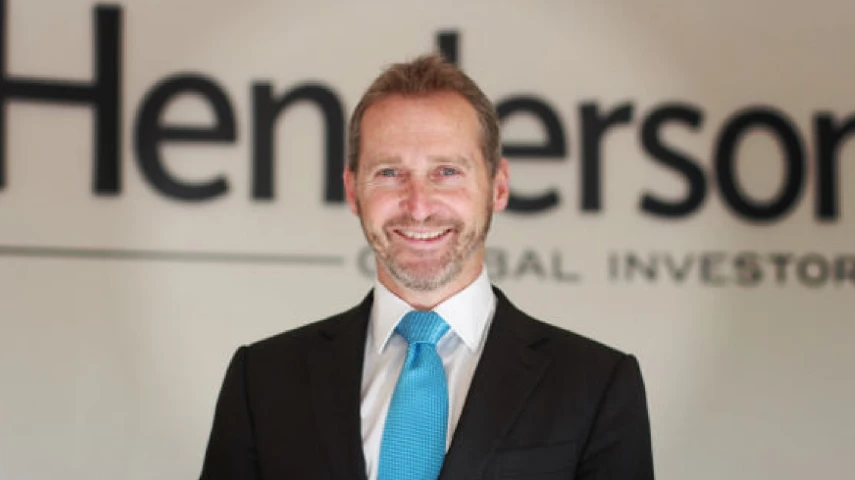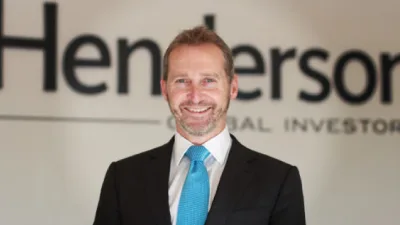How can Andrew Formica help Magellan recover?



The announcement of Andrew Formica joining the Magellan board is a prominent hire for the asset manager, and the former CEO will no doubt bring various learnings to the board.
The firm announced last month that it had appointed Formica, newly arrived back in Australia after 30 years in the UK, as a non-executive director on its board.
He spent most of his career in the UK, but Formica originally hails from Australia and began his career as a fund manager at AMP Capital. AMP went on to acquire UK business Henderson in 1998 before de-merging in 2003, although the company remained listed on the ASX.
Formica stayed at the firm as head of equities and was later appointed as chief executive in 2008, successfully transitioning from a portfolio management career to one in the C-suite.
Sources describe Formica as someone “who gets stuff done, can make hard decisions and can push actions through”, and nowhere is this more evident than the acquisitions made by Henderson.
During his tenure, he helped Henderson double its assets under management from £52.9 billion when he took over the role to £100 billion through an aggressive acquisition strategy of New Star in 2009 and Gartmore in 2011.
Further maintaining his Australian links, Henderson also acquired a minority stake in Australian specialist natural resources fund manager 90 West Asset Management in 2013, later taking a full stake in 2015, and acquired Perennial Fixed Interest Partners and Perennial Growth Management from IOOF in 2015.
Another Australian link was his work with Rob Adams, chief executive of Perpetual, who worked as head of pan-Asia at Henderson. Like Henderson, Perpetual has also been on an acquisition spree since Adams took the helm, with the acquisition of Trillium Asset Management and a 75 per cent stake in Barrow Hanley in 2020 and Pendal Group in January 2023.
In Formica’s largest deal, the firm merged with US-listed Janus Capital – home of bond king Bill Gross at the time – in May 2017 to become Janus Henderson, where he was co-CEO with Dick Weil until his departure in 2018. By the time of his departure, the combined firm had US$370 billion in assets under management.
Following Janus Henderson, Formica moved over to Jupiter Fund Management in 2019. While Jupiter is a far smaller firm than Janus Henderson, it is by no means a boutique firm and has around £52.9 billion in assets under management.
Morningstar senior research analyst, Evangelia Gkeka, noted he continued his love of acquisitions at Jupiter.
“Under Formica’s leadership, Jupiter completed the acquisition of Merian in 2020 with the aim to strengthen Jupiter’s position in its UK home market and diversify its product line-up.
“Formica also made a number of key executive hires, increased investment staff, opened a few new offices and worked on some strategic partnerships. It is difficult to assess how successful his stint at Jupiter was given that he was only there for three years, and that period also included the COVID-19 related lockdown periods and the associated market volatility. However, he certainly has experience in working for diversified asset managers during periods of mergers and strategic transitions.”
As for how Magellan can be rescued, a Morningstar analyst note in May, as seen by Money Management, stated Magellan is approaching the end of its troubles but it will take years to return to net inflows across its product range. Its funds under management are currently at $39.4 billion as of 31 July.
“While Magellan is likely past the worst of its operational headaches, it will be difficult to restore to its competitive strengths.
“With the erosion of Magellan’s brand, its exclusion from model portfolios and growing adoption of low-cost investments, it’s likely that redemptions will be persistent, partly offset by periodic mandate wins.
“For Magellan to return to net inflows, it needs to outperform with greater consistency, add further differentiated products, reclaim its position in model portfolios and recover its strong fund ratings and reputation. These milestones are currently elusive to Magellan and at minimum will take years to achieve.”
Speaking to Money Management on our Relative Return podcast, Magellan chief executive David George, has described his plan to rebuild assets to $100 billion by improving fund performance, having a diversified product mix and being the partner of choice for Australian wealth managers.
Where Formica could fit in that, George also hinted at potential acquisitions, following on from the acquisition of specialist Australian equities manager, Airlie, in 2018.
“We will be looking for opportunities to invest in experienced, quality teams and capabilities in equities, and we believe we can replicate the integration success of Airlie,” George said last October 2022.
“As time moves forward and we are again delivering client outcomes through performance, we will look towards areas like private markets as allocation to this segment is growing in our clients’ portfolios. Where we can and where it makes sense, we will grow alongside their needs. We will be disciplined in our approach to this. Any investment or acquisition we make in time will be strategic and scalable, fit alongside our existing funds management business and deliver synergies in order to drive shareholder value.”
With Formica’s M&A experience at the board room table, it will be interesting to see if Magellan takes this approach as a way to rebuild their brand, and in that event, who its potential targets could be.
Recommended for you
In this week’s special episode of Relative Return Unplugged, we present shadow treasurer Angus Taylor’s address at Momentum Media’s Election 2025 event, followed by a Q&A covering the Coalition’s plans for the financial services sector.
In this week’s episode of Relative Return Unplugged, AMP chief economist Shane Oliver joins the show to unravel the web of tariffs that US President Donald Trump launched on trading partners and take a look at the way global economies are likely to be impacted.
In this episode of Relative Return, host Laura Dew is joined by Andrew Lockhart, managing partner at Metrics Credit Partners, to discuss the attraction of real estate debt and why it can be a compelling option for portfolio diversification.
In this week’s episode of Relative Return Unplugged, AMP’s chief economist, Shane Oliver, joins us to break down Labor’s budget, focusing on its re-election strategy and cost-of-living support, and cautioning about the long-term impact of structural deficits, increased government spending, and potential risks to productivity growth.











